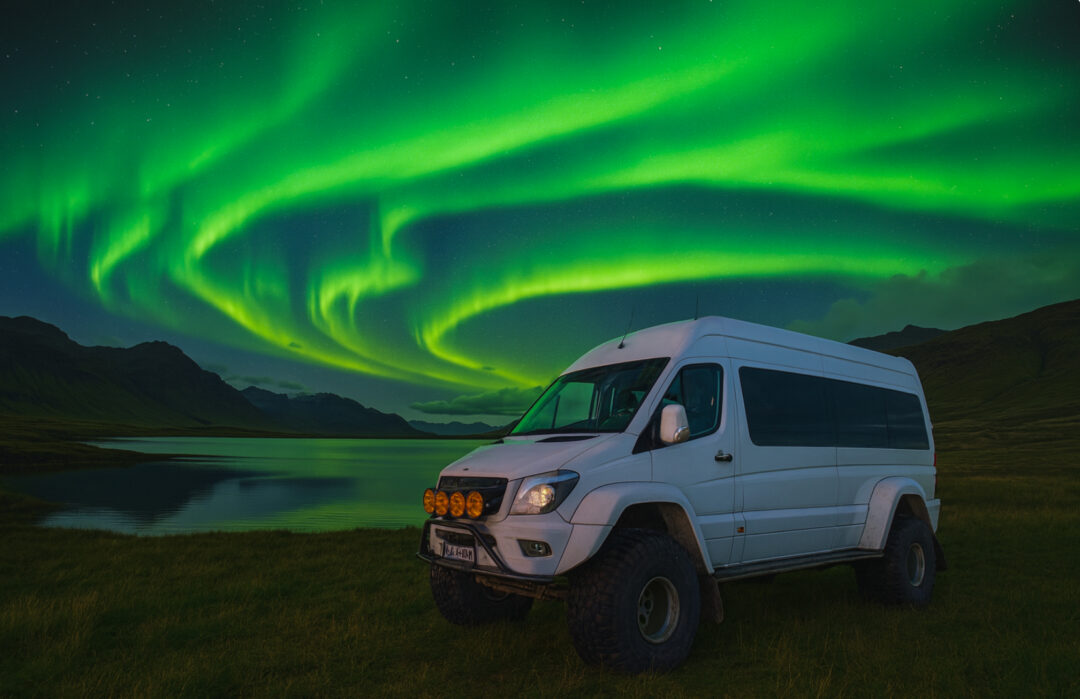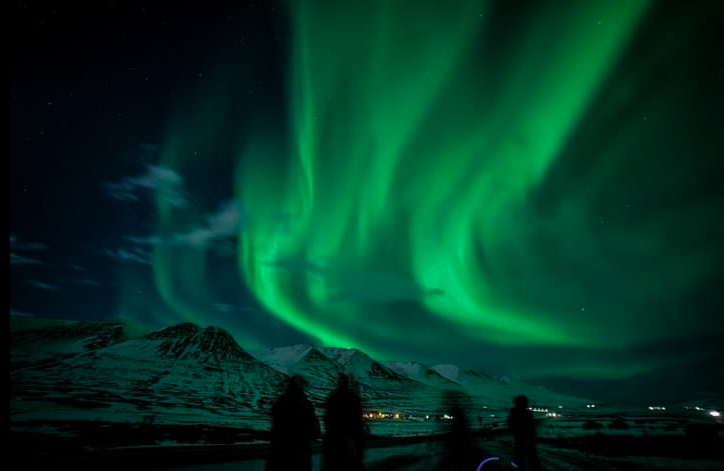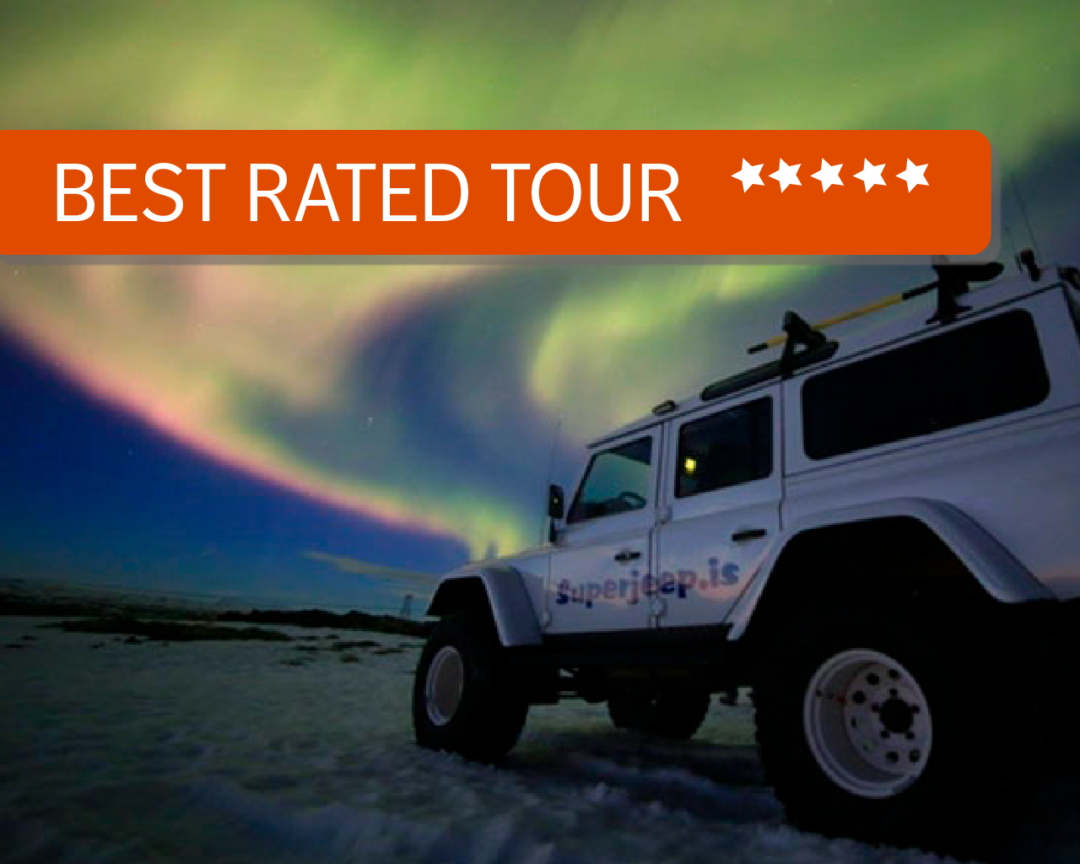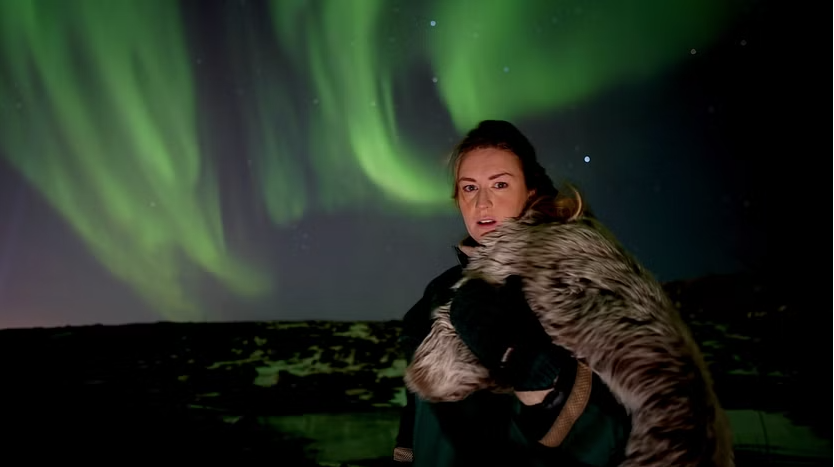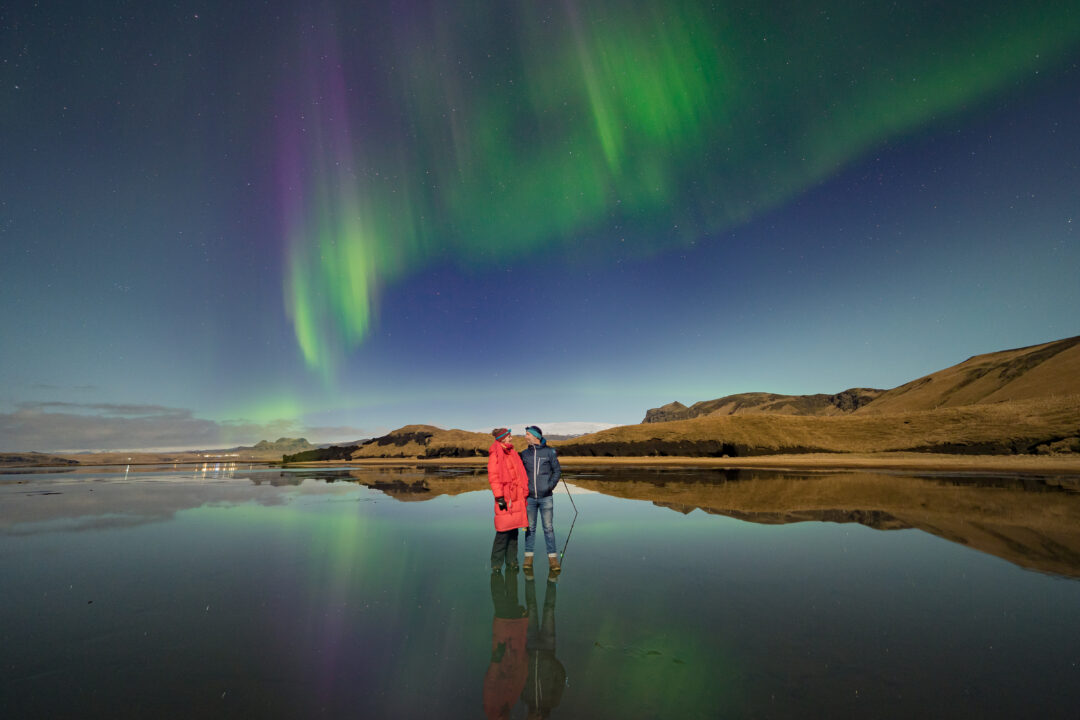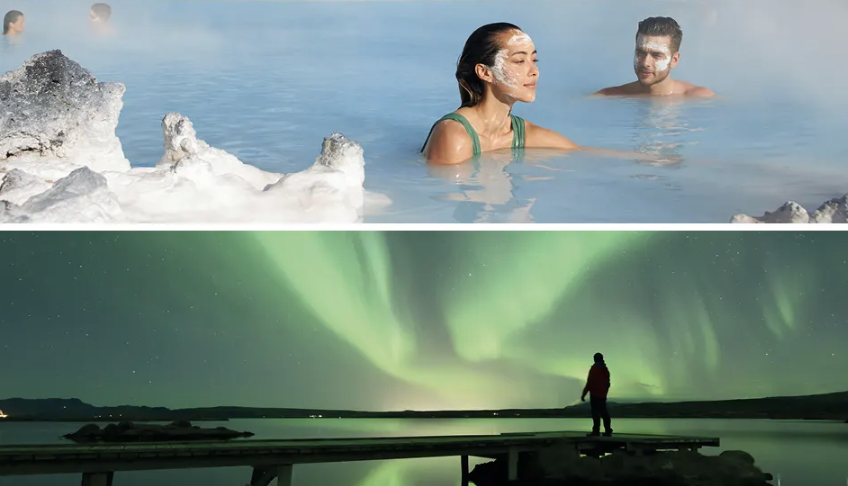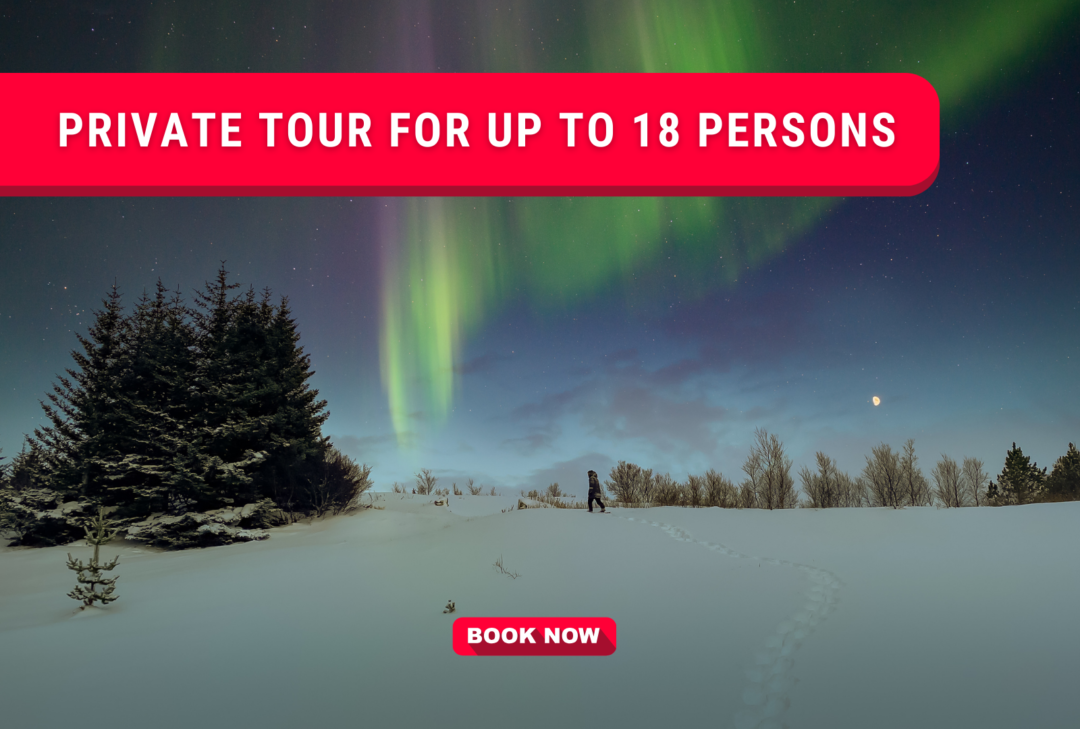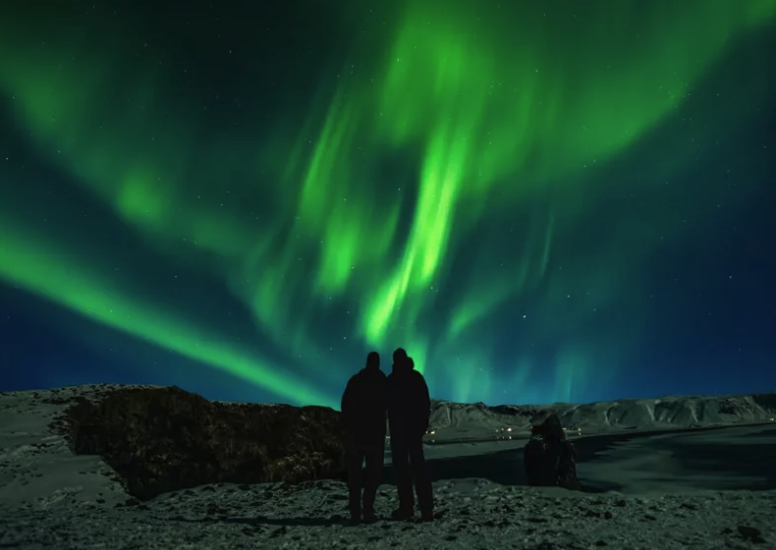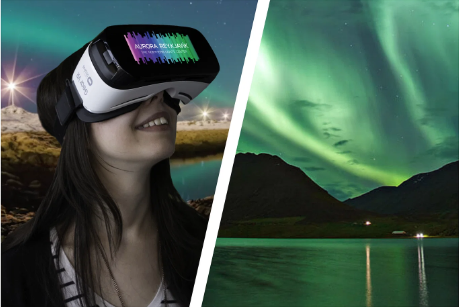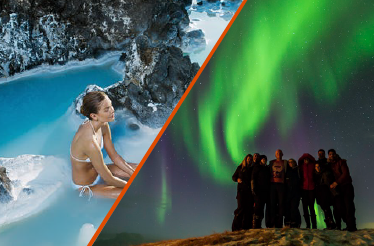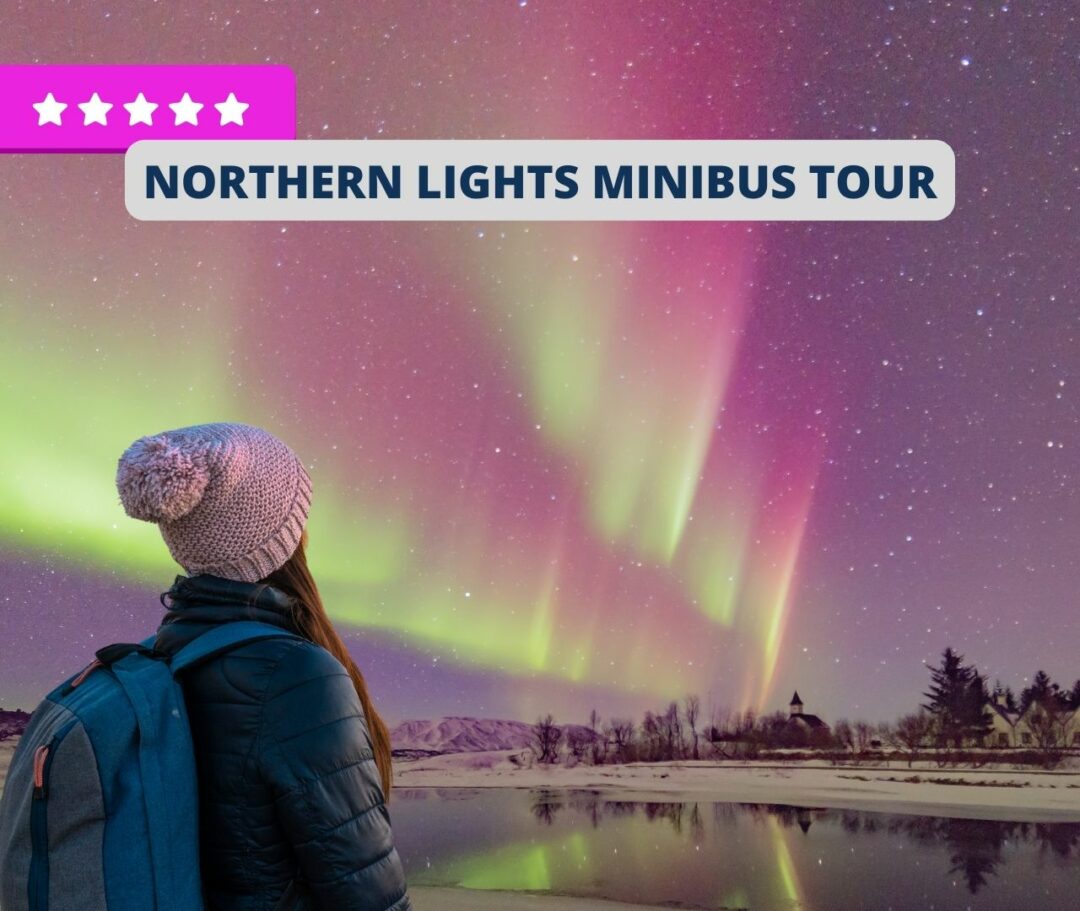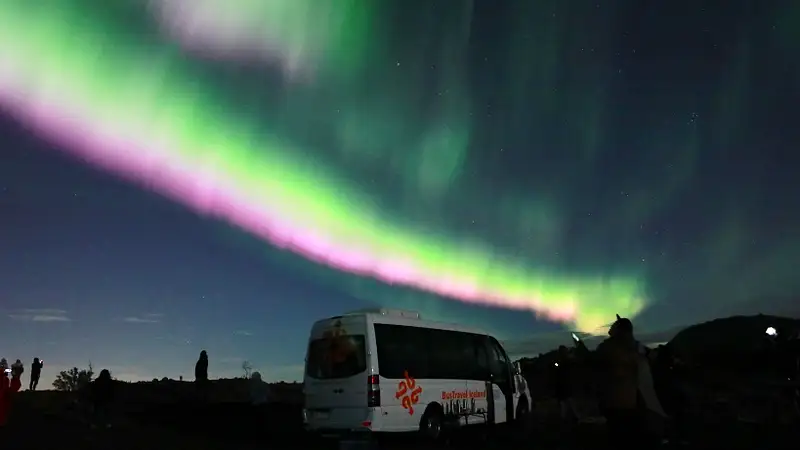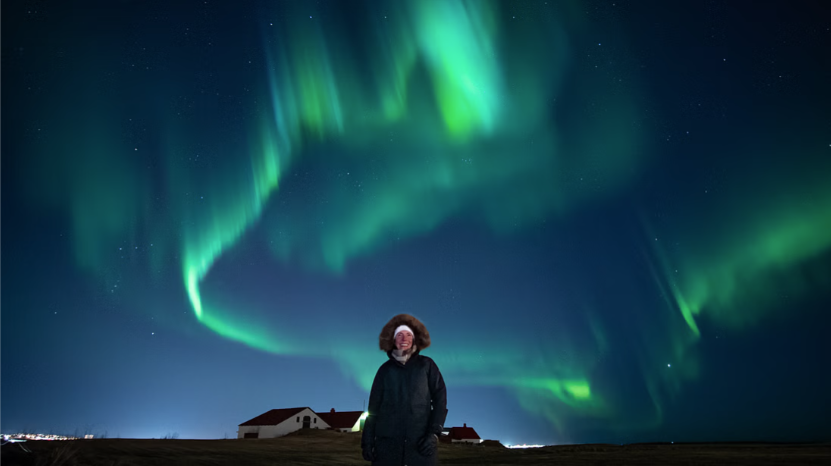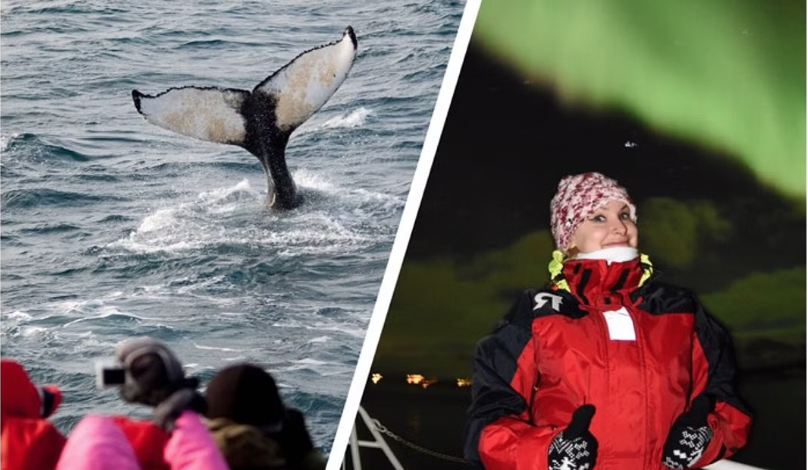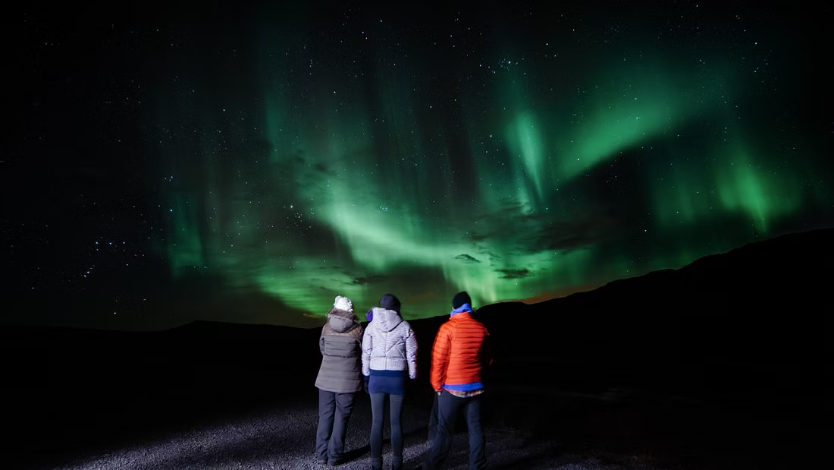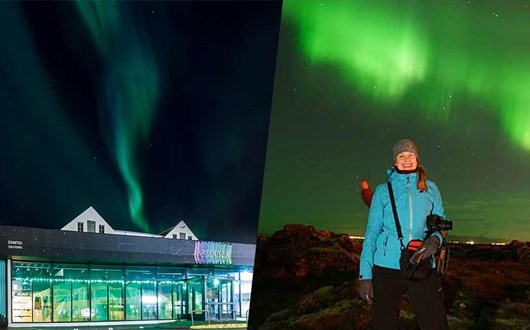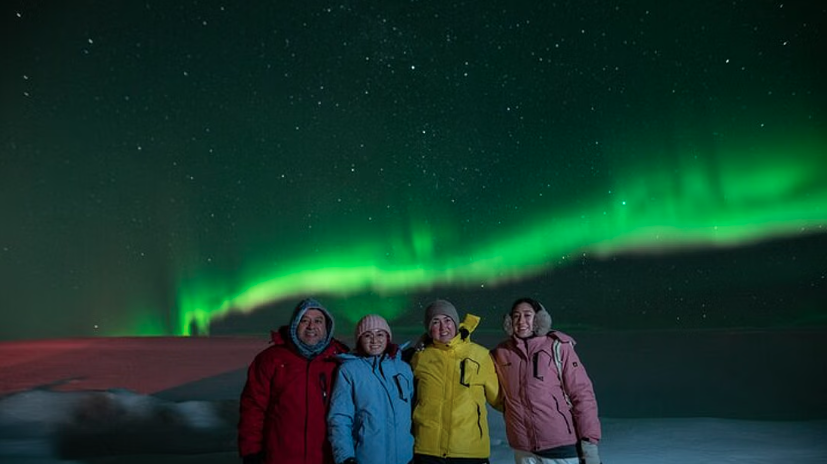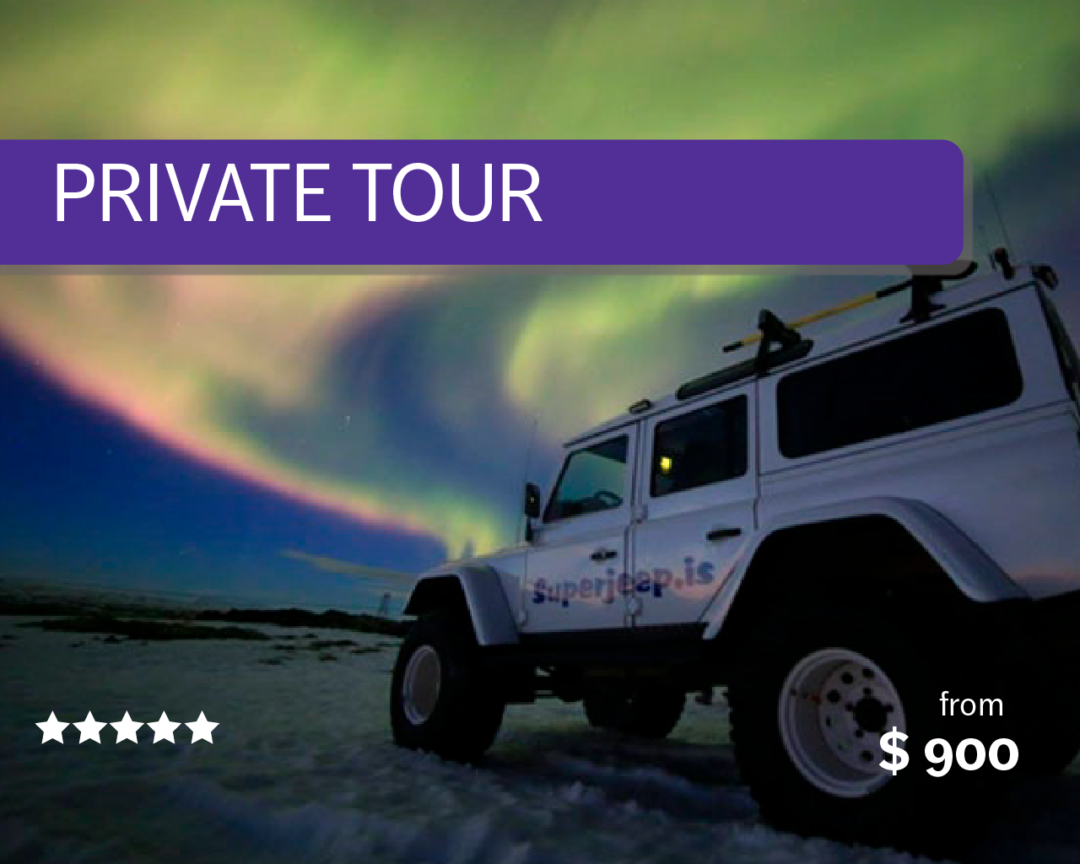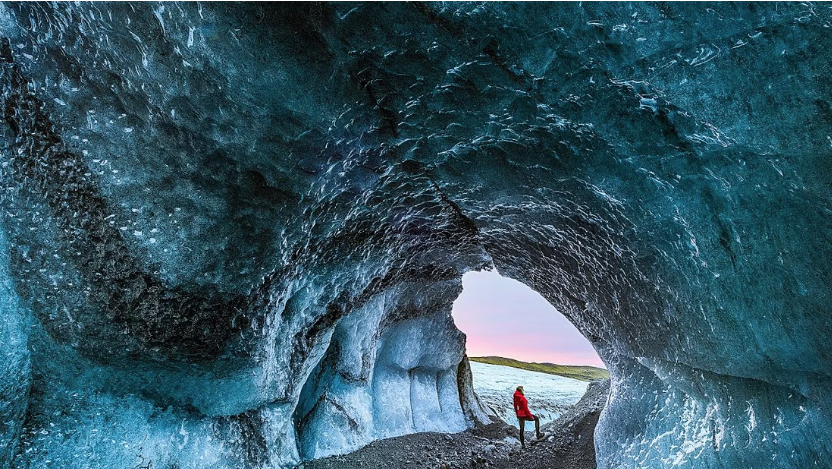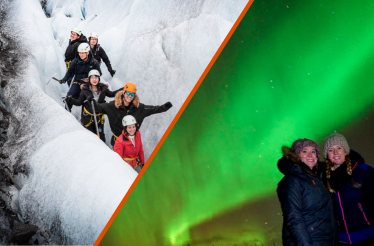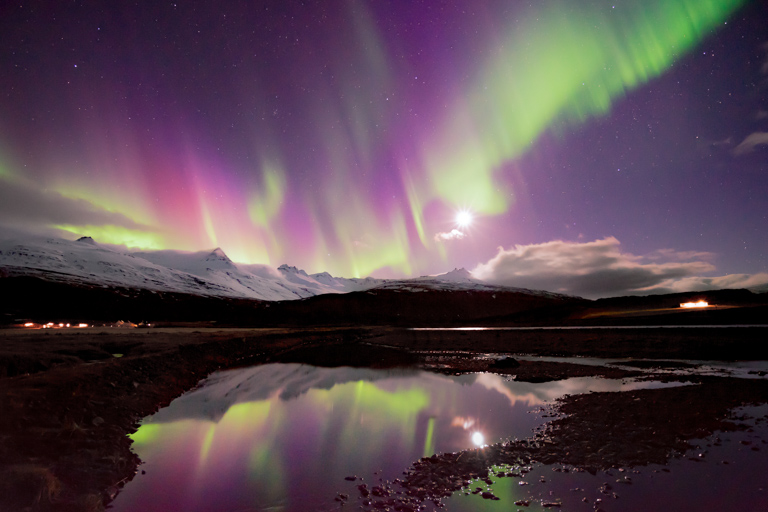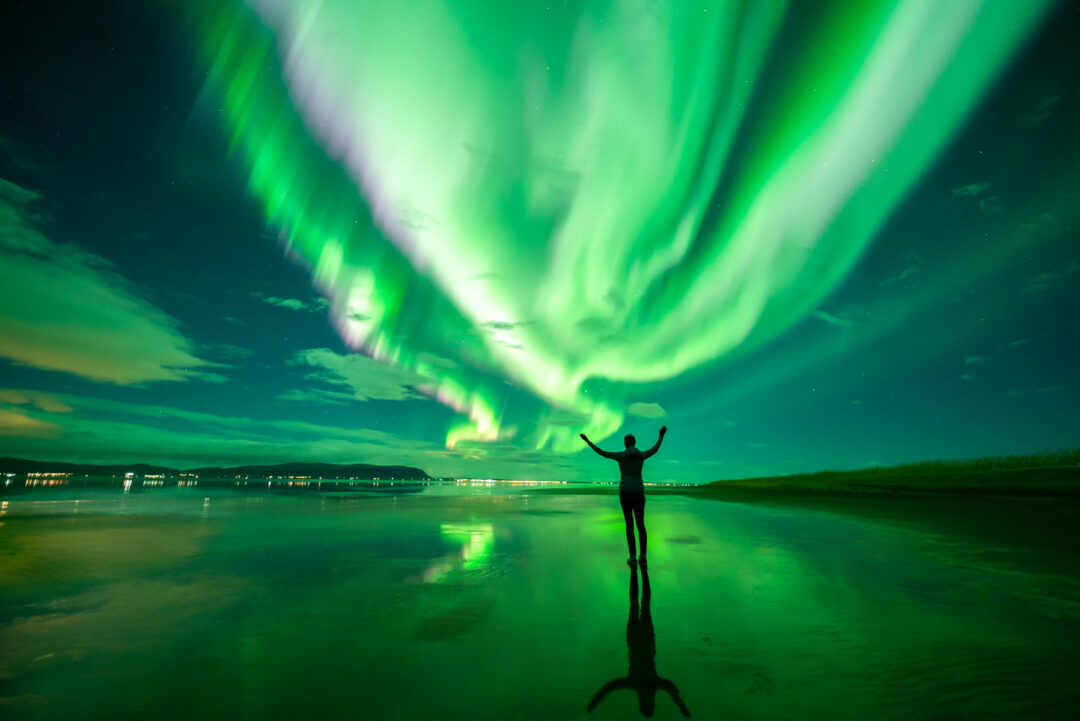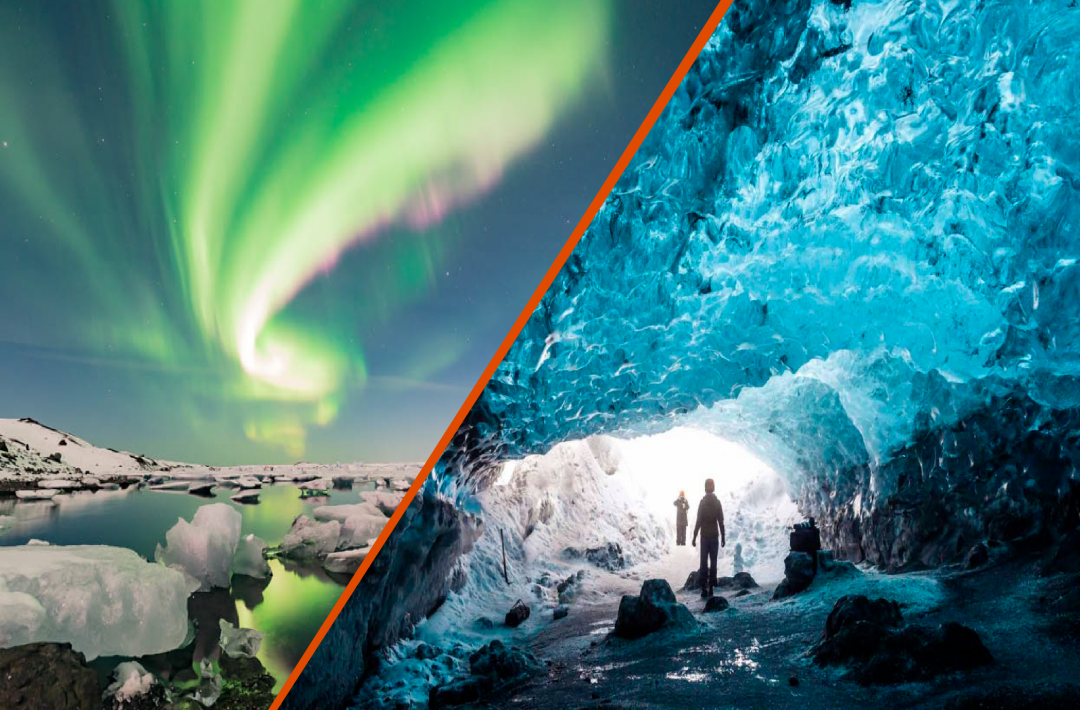Máximo solar: por qué el invierno de 2024/25 es el momento perfecto para ver las auroras boreales en Islandia
¿Estás listo para ser testigo de la impresionante belleza de las Auroras Boreales? ¡Nunca ha habido un momento más perfecto que ahora! Los meteorólogos están llenos de entusiasmo, prediciendo una temporada excepcional de Auroras Boreales no solo para este año, sino también para los próximos 2-3 años. Si alguna vez has soñado con estar bajo las hipnotizantes olas de luces coloridas, es el momento de reservar tu billete a Islandia.
ÚNETE A NOSOTROS EN UNA EXCURSION PARA VER AURORAS BOREALES
¿Qué son las Auroras Boreales?
Las Auroras Boreales, también conocidas como ‘auroras’, son el resultado de partículas cargadas provenientes del Sol que interactúan con el campo magnético de la Tierra. A medida que el Sol pasa por períodos de intensa actividad, liberando llamaradas solares y poderosos vientos solares, nos regala espectáculos más frecuentes y deslumbrantes de este fenómeno natural de luces.
En este artículo, nos adentraremos en el corazón de esta anticipación eléctrica, explorando por qué los expertos están tan emocionados con esta temporada y por qué promete ser una muestra extraordinaria de la maravilla de la naturaleza.
EXCURSIÓN DE AURORAS BOREALES EN SUPERJEEP
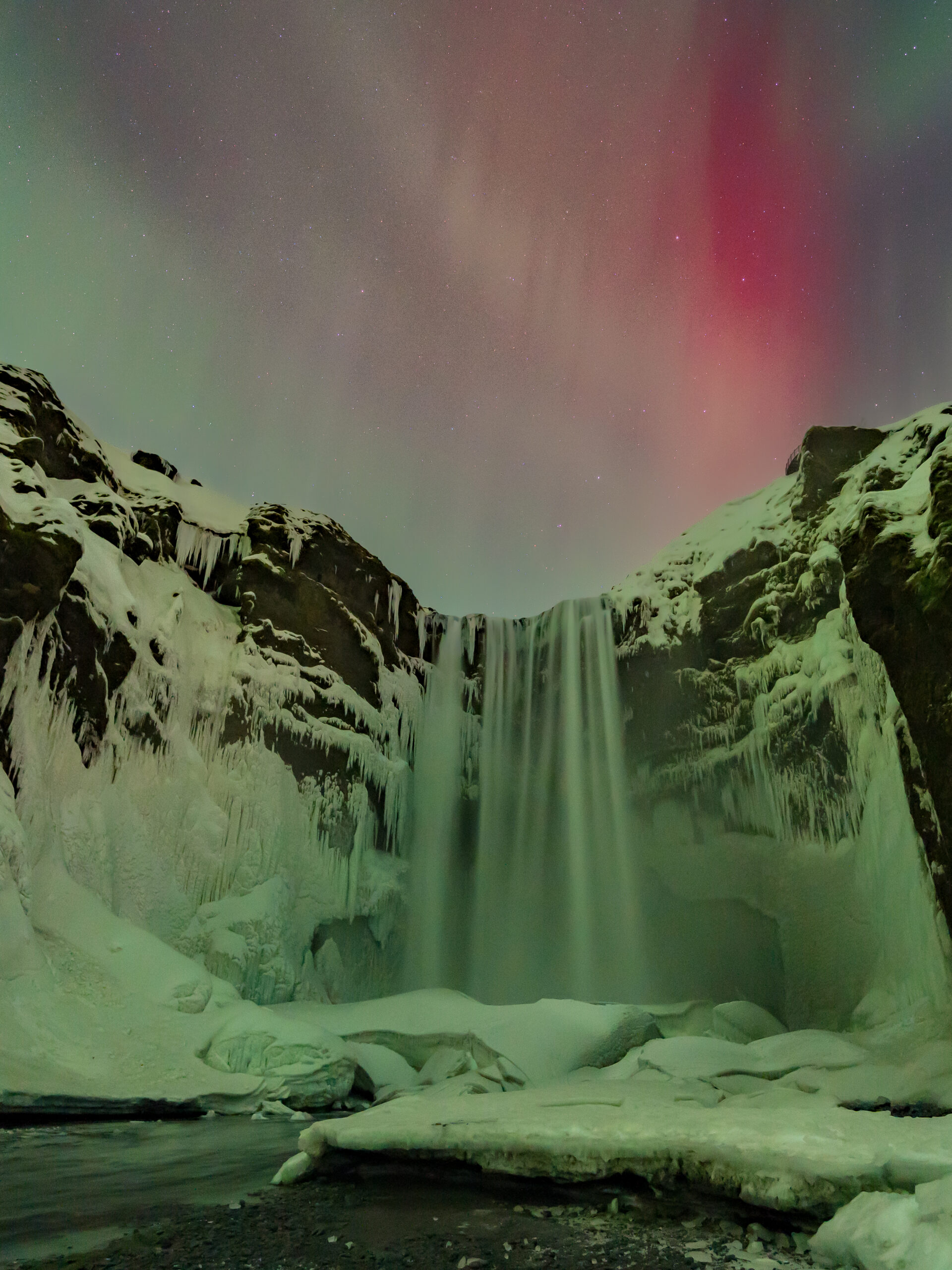
Las raras auroras rojas o auroras sangre ocurren con más frecuencia durante el máximo solar.
Entendiendo el Ciclo de Actividad del Sol
El Sol sigue un ciclo de 11 años, pasando por períodos de alta actividad, conocidos como el “Máximo Solar”, y tiempos más tranquilos, llamados el “Mínimo Solar”. El campo magnético del Sol, que cambia constantemente y se retuerce, establece el escenario para fascinantes eventos solares.
- Manchas solares: Estas manchas más frías y oscuras en la superficie del Sol indican una mayor actividad.
- LLamaradas solares: Estallidos brillantes de energía solar que pueden afectar el campo magnético de la Tierra y potenciar las Auroras Boreales.
- Expulsiones de Masa Coronal (CME): Enormes nubes de material solar y magnetismo que, al chocar con el campo magnético de la Tierra, crean deslumbrantes exhibiciones de Auroras Boreales.
Durante el Máximo Solar, cuando el Sol está en su pico de actividad, somos testigos de los espectáculos más espectaculares de Auroras Boreales. Con el aumento de la actividad solar que se avecina, lugares como Reikiavik en Islandia se convierten en puntos clave para presenciar este fenómeno.
Signos de máximo solar
Varios signos indican el despertar temprano del Sol:
- Un aumento en las poderosas llamaradas solares.
- Fenómenos solares raros que han intrigado incluso a los astrónomos más experimentados.
- Mayor número de manchas solares en la superficie del Sol.
Ya hemos sido testigos de algunas exhibiciones espectaculares y inusualmente coloridas hacia el final de la pasada temporada – aquí tienes uno de nuestros vídeos en tiempo real.
Tormentas solares recientes: Mayo y Agosto 2024
En 2024, ya hemos sido testigos de algunas de las tormentas solares más extraordinarias de la historia reciente, que hicieron titulares en todo el mundo. Tanto en mayo como en agosto, estas intensas tormentas solares permitieron que las auroras boreales fueran visibles en los 50 estados de EE. UU., e incluso tan al sur como los Alpes en Europa. Este fue un evento raro y espectacular, que mostró el poder de la actividad solar durante este máximo solar.
Estas tormentas geomagnéticas fueron desencadenadas por una mayor actividad solar, un indicador clave de que nos estamos acercando al pico del ciclo solar, lo que hace que las auroras sean visibles mucho más allá de sus áreas de visualización habituales. Tal actividad aumenta la probabilidad de exhibiciones aurorales más frecuentes e intensas en los próximos meses, lo que convierte este invierno en el momento ideal para visitar Islandia y ver las auroras boreales.
Con la ubicación privilegiada de Islandia para ver las auroras boreales y la actividad solar actual en su punto máximo, tus posibilidades de presenciar un espectáculo auroral espectacular nunca han sido mejores.
¿Estás listo para tu aventura auroral? Echa un vistazo a nuestros tours más vendidos aquí.
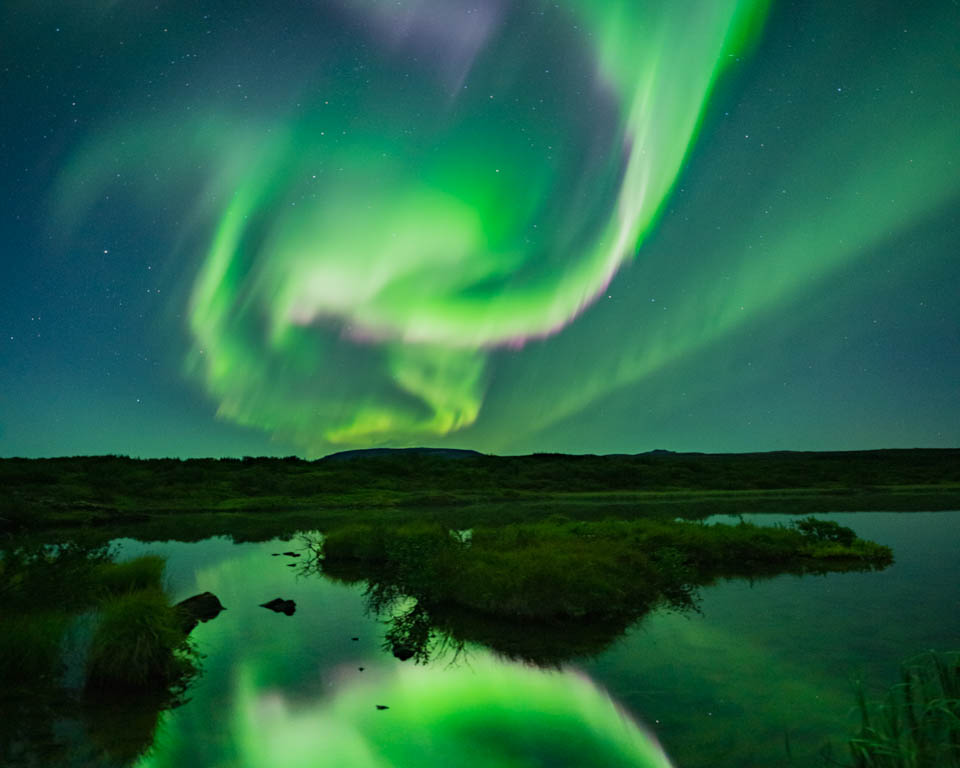
Explosión de luces en septiembre, Parque Nacional Þingvellir.
EXCURSIÓN DE AURORAS BOREALES EN SUPERJEEP
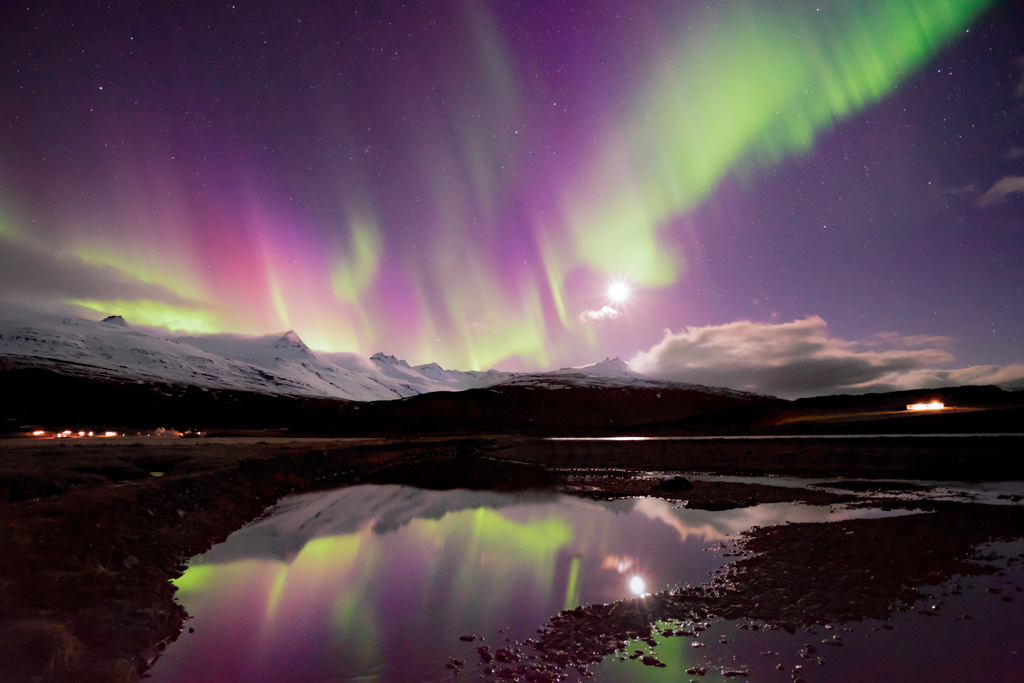
Auroras rosas y moradas en nuestro tour en superjeep de Auroras Boreales.
Cómo el Máximo Solar Impacta a las Auroras Boreales.
Durante el Máximo Solar, el campo magnético de la Tierra recibe un mayor flujo de partículas solares. Estas partículas interactúan con los gases atmosféricos, lo que da lugar a deslumbrantes exhibiciones de luces de colores en el cielo. Dado el adelanto del Máximo Solar, se espera que las Auroras Boreales sean más vibrantes, frecuentes y extendidas, incluso en lugares poco comunes.
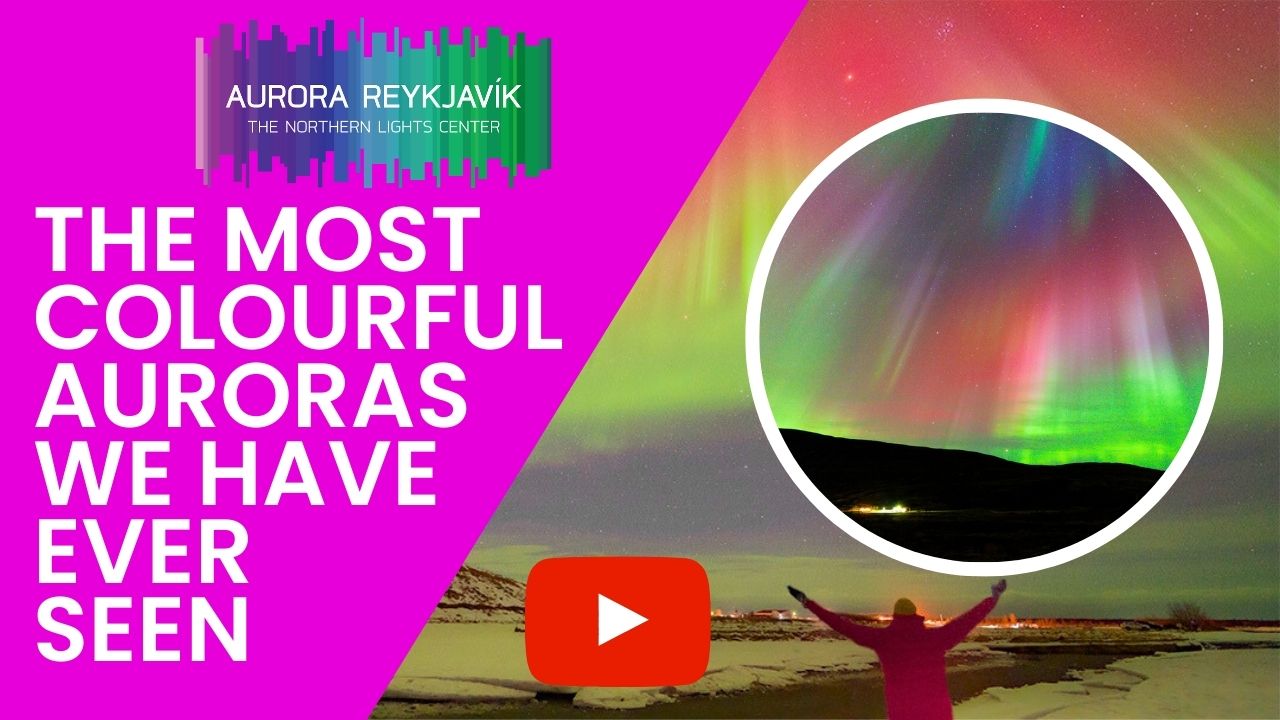
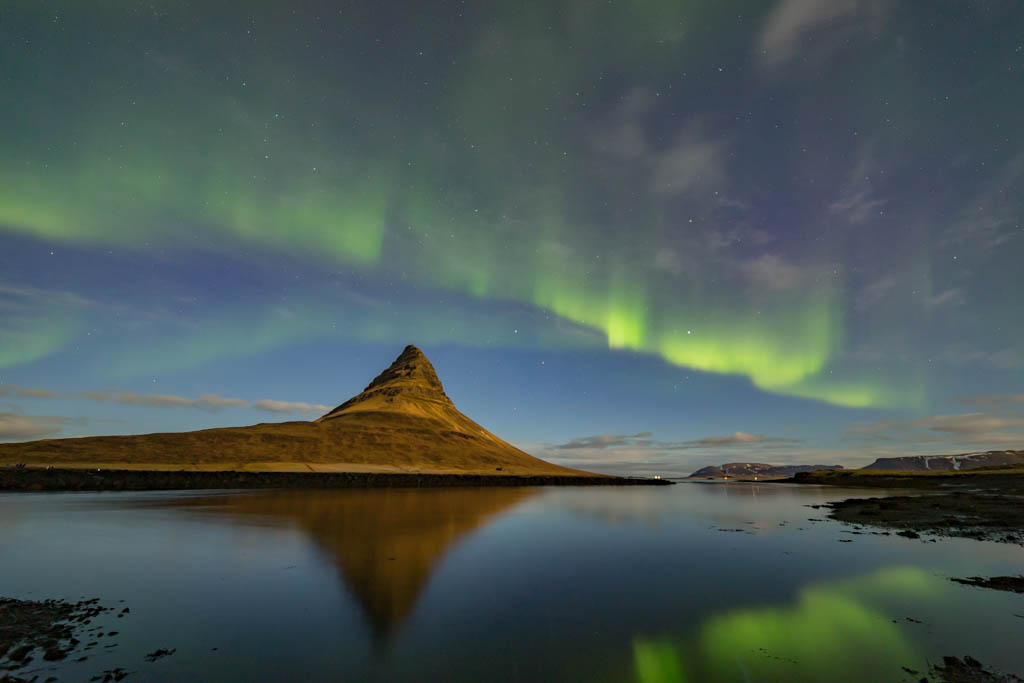
Auroras Boreales en Kirkjufell en marzo.
Qué esperar en Islandia durante la temporada de invierno 2024/25 y más adelante
Se espera que Reikiavik y otras ubicaciones clave de Islandia se conviertan en puntos calientes para los entusiastas de las auroras durante la temporada de invierno 2024/25. El aumento de la actividad solar no significa un fenómeno único de una sola temporada; se espera que las siguientes 2-3 temporadas de invierno también ofrezcan experiencias excepcionales de Auroras Boreales.
La magia de presenciar las Auroras Boreales amplificadas.
Experimentar las Auroras Boreales a menudo se describe como una experiencia trascendental. Con la actividad solar amplificada, las Auroras Boreales brillarán con más luminosidad, creando colores más intensos y patrones intrincados en el cielo nocturno. Ya seas un principiante o un entusiasta experimentado, esta temporada promete una actuación inolvidable.
¿Estás listo para planificar tu visita? Echa un vistazo a estos tours.
En resumen
1. En Islandia, la temporada de Auroras Boreales comienza alrededor de finales de agosto y termina a mediados de abril, y si visitas en cualquier momento dentro de este período durante unos pocos días, tendrás una buena probabilidad de éxito.
2. Contrario a la creencia común, el invierno profundo no es necesariamente el mejor momento para ver las auroras boreales, debido a la reducida actividad solar y las condiciones meteorológicas inestables. ¡Considera septiembre o marzo para aumentar tus posibilidades!
3. Ten en cuenta que la magnífica Aurora Boreal es un fenómeno natural, que no siempre aparece a la hora indicada. Incluso cuando las probabilidades parecen estar a tu favor, siempre considera ver las auroras boreales como la guinda del pastel de tu viaje.
4. Elige la temporada para tus vacaciones según tus preferencias y necesidades: ¿buscas una escapada invernal ártica con luces danzantes sobre tu jacuzzi, o prefieres más horas de luz diurna y temperaturas más cálidas para explorar los diversos paisajes y actividades del país?
¿Ya has decidido cuándo viajar al círculo ártico? Echa un vistazo a nuestra Guía definitiva para ver las Auroras Boreales – ¡te preparamos para la experiencia!

